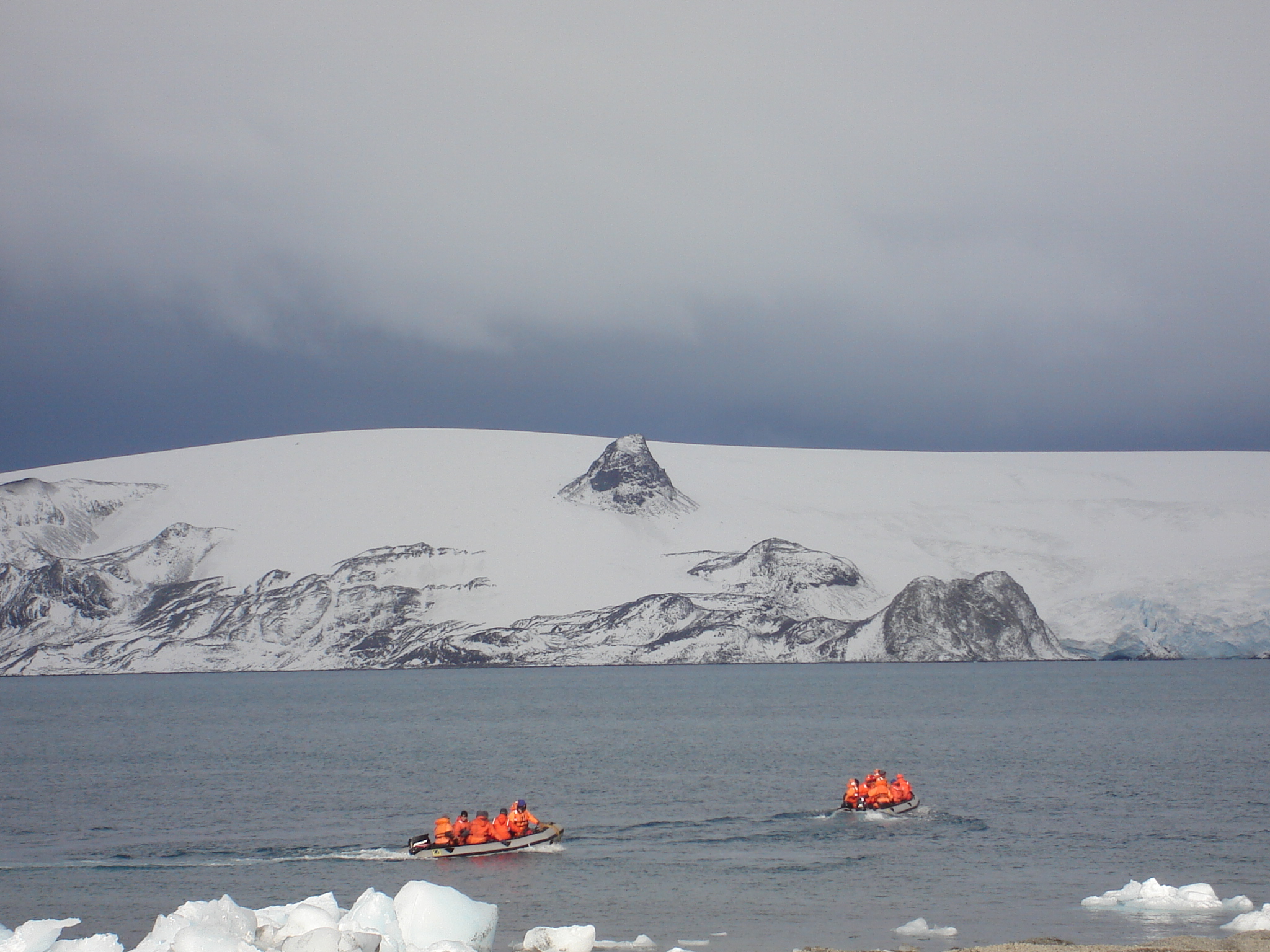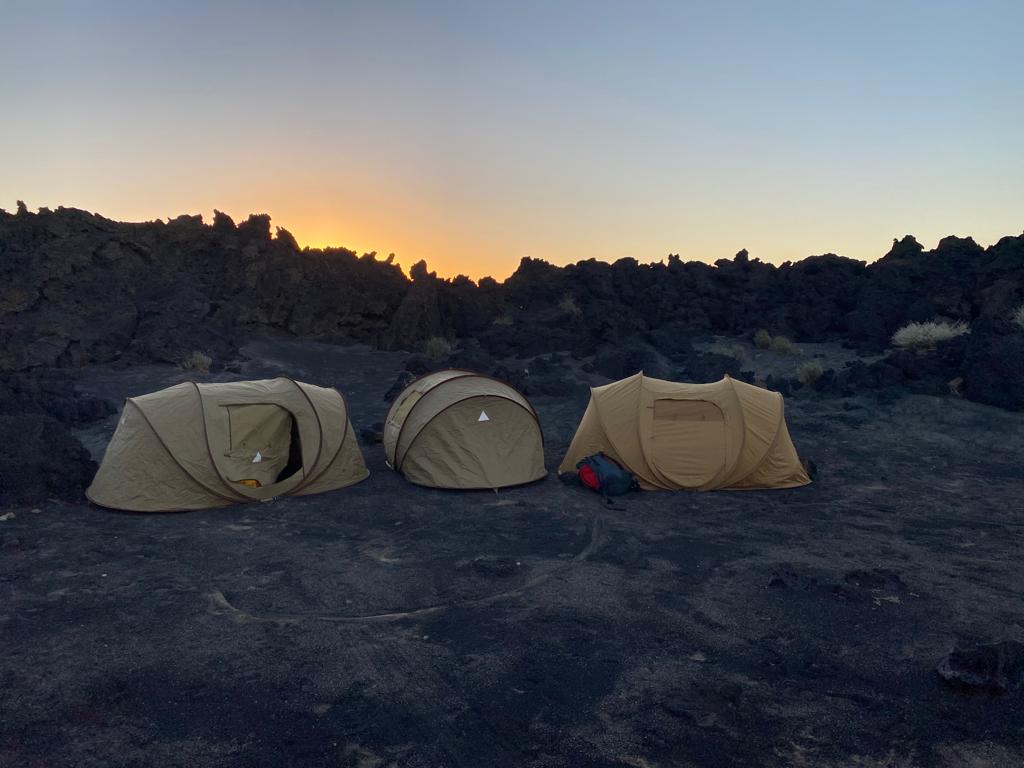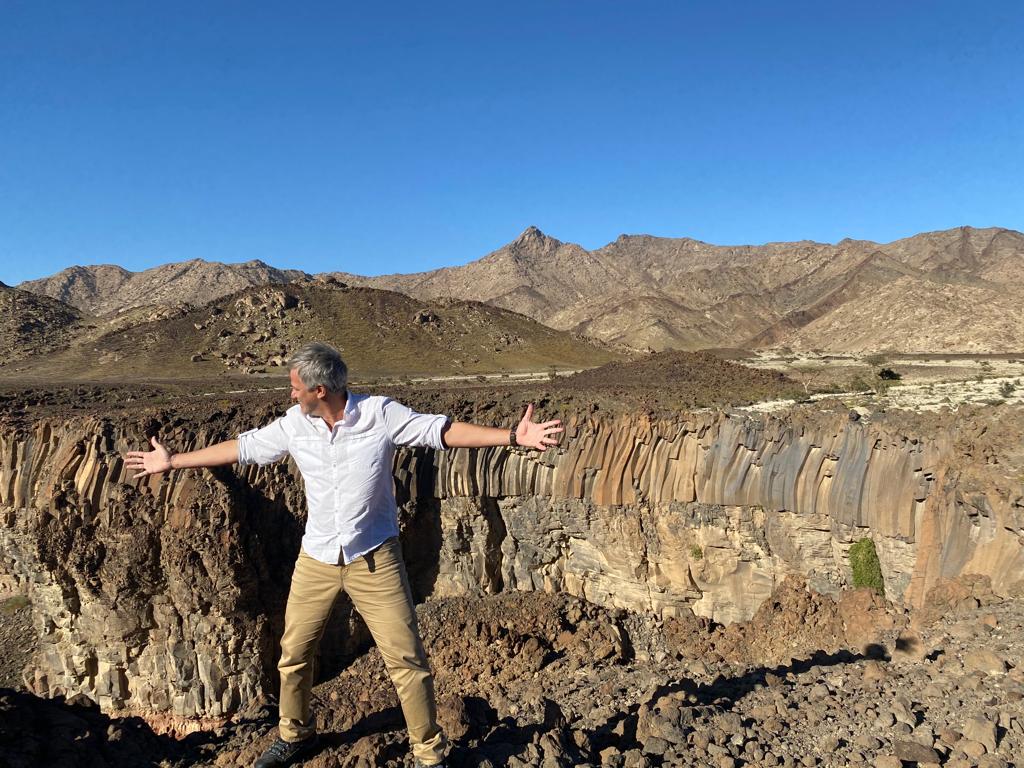Learning from extreme survivors

The KAUST team and coworkers head to the sampling site in Admiralty Bay, King George Island, during one of the many expeditions to Antartica. ©KAUST2023; Alexandre Rosado
A lifelong curiosity about how certain animals can survive in extreme conditions led Professor Alexandre Rosado of King Abdullah University of Science and Technology (KAUST) to a career studying the microorganisms, known as extremophiles, that exist in the world's harshest environments.
Rosado is especially fascinated by microbes capable of not only surviving but thriving in extreme environments that many people would doubt support life at all. Initially, he studied environments such as chemically contaminated soils and mangrove swamps and the organisms adapted to live there. His chance to study even more extreme environments came in 2007, with an opportunity to participate in an expedition to Antarctica — the first of many.
"I had the chance to study psychrophilic (cold-tolerating) bacteria, describing new species, studying their role in the Antarctic ecosystem and identifying processes that could be applied in environmental biotechnology, such as bioremediation — using microorganisms to clean up after oil spills, for example," Rosado said.
Rosado's research has since taken him to many other remarkable destinations, including Brazilian rainforests, the Atacama Desert in Chile, hot springs in California and many places in Africa. In 2020 he joined KAUST as a professor of bioscience, where he leads a team researching microbes from several Saudi ecosystems, including deserts, volcanoes, hot springs and mangroves.
"We are helping to reveal the diversity and the great biotechnological potential of microorganisms from the fantastic extreme environments of Saudi Arabia," he said. "Ecosystems in Saudi Arabia are frequently exposed to extremely harsh conditions, including high and low temperatures, high humidity, high UV irradiation and a lack of nutrients. These conditions make the country one of the most interesting places on Earth for research on extremophiles."

The researchers camped in a remote desert area near Tabuk in northern Saudi Arabia to collect their samples. ©KAUST2023; Alexandre Rosado
While the desert environments provide a rich resource for their work, the conditions also present significant challenges for Rosado and his team.
"The biggest challenges are logistical because the locations are usually very remote and very difficult to access," Rosado said. "We also face the difficulties of collecting in extreme cold or hot weather and how best to preserve the samples until we can get them to the laboratory, among many other difficulties and unforeseen situations that invariably arise."
He added, "The greatest reward is knowing that we are going to places that few other people will ever visit and that we will discover and reveal new things. We are discovering many previously unknown species, as well as new bioproducts."
Due to their unique and versatile characteristics for surviving in hostile conditions, extremophiles are considered potential sources of bioproducts, such as enzymes and biomolecules for use in many areas, including the oil industry, agriculture, pharmaceutical and medical industries.
With its diverse array of extreme environments, Rosado believes that Saudi Arabia has vast potential to be a leader in the biotechnology of extremophiles. He is also interested in how these organisms could have applications for colonizing space.

Alexandre Rosado (pictured): "I was fascinated by the scenic landscape of a desert in Tabuk while I was collecting soil samples to isolate extremophilic bacteria." ©KAUST2023; Niketan Patel
"The study of extremophile microorganisms helps us understand the limits of life on our planet. Considering that temperature is one of the most determining parameters for life, the study of survival strategies in extreme temperatures helps us define questions about planetary habitability and direct possible targets for the search for life outside our planet, such as on Mars," Rosado said.
The team works on astrobiology by exploring environments of deserts, volcanoes and geothermal sources similar to conditions on Mars, evaluating the diversity of microorganisms and their metabolisms as model candidates for studying extraterrestrial life.
Rosado also said that research into new biotechnologies that have potential applications for space colonization may also have applications on Earth. This could include the development of agriculture in new areas, the development of garbage recycling systems and using newly discovered microbes to help clean up oil spills, for example. The study of these extremophile bacteria, described for the first time from a range of harsh environments in Saudi Arabia, may lead to exciting discoveries that could benefit industry and medical science in Saudi Arabia and beyond.
Related links
-
Going to extremes to tackle oil contamination
-
Briny pool bacteria can clean up and power up
- KAUST Insight — the stories behind KAUST research discoveries

